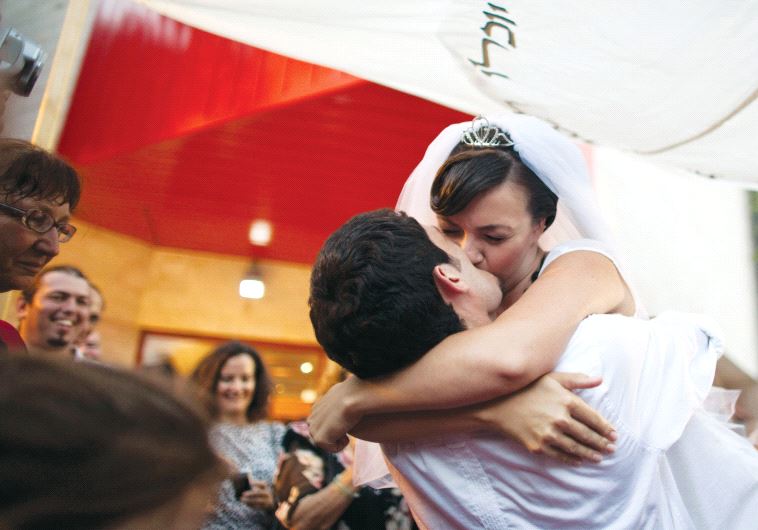Not an open primary
Diversity is served by maintaining and respecting differences,
not by diluting religions to the point that they become indistinguishable.
 A bride and groom kiss under the chuppah at their wedding(photo credit: NIR ELIAS / REUTERS)
A bride and groom kiss under the chuppah at their wedding(photo credit: NIR ELIAS / REUTERS)